Child Events & Resources
Story Time

Mondays @ 10 am in Elizabeth
Mondays @ 3 pm in Elbert
Tuesdays @ 11:30 am in Simla
Wednesdays @ 10 am in Elizabeth
Story time helps kids:
- Increase literacy development
- Explore new books
- Encourage a love of reading & learning
- Make new friends
Every Story time includes:
- Read aloud
- Songs or rhymes
- Craft or hands-on activity
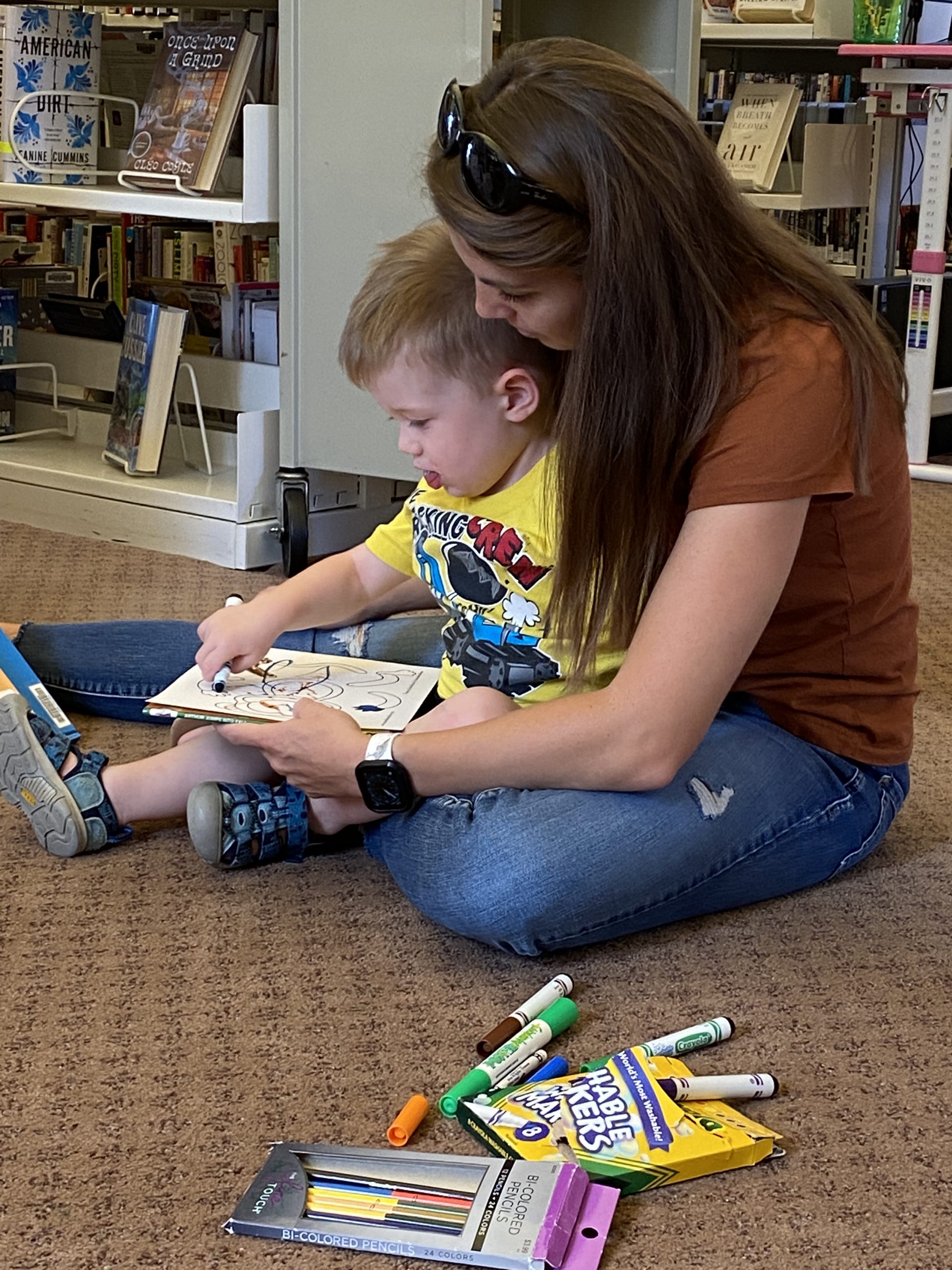
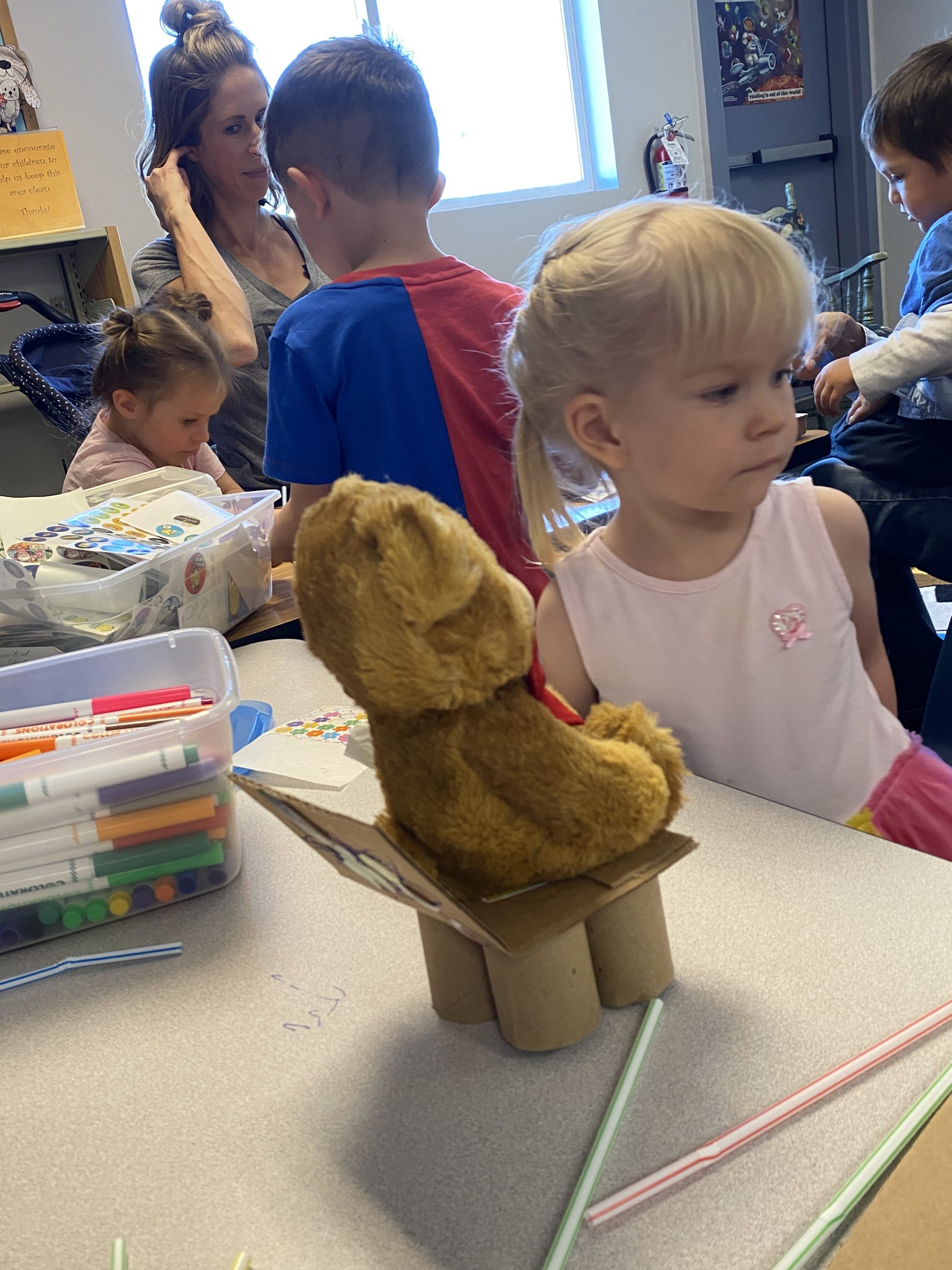
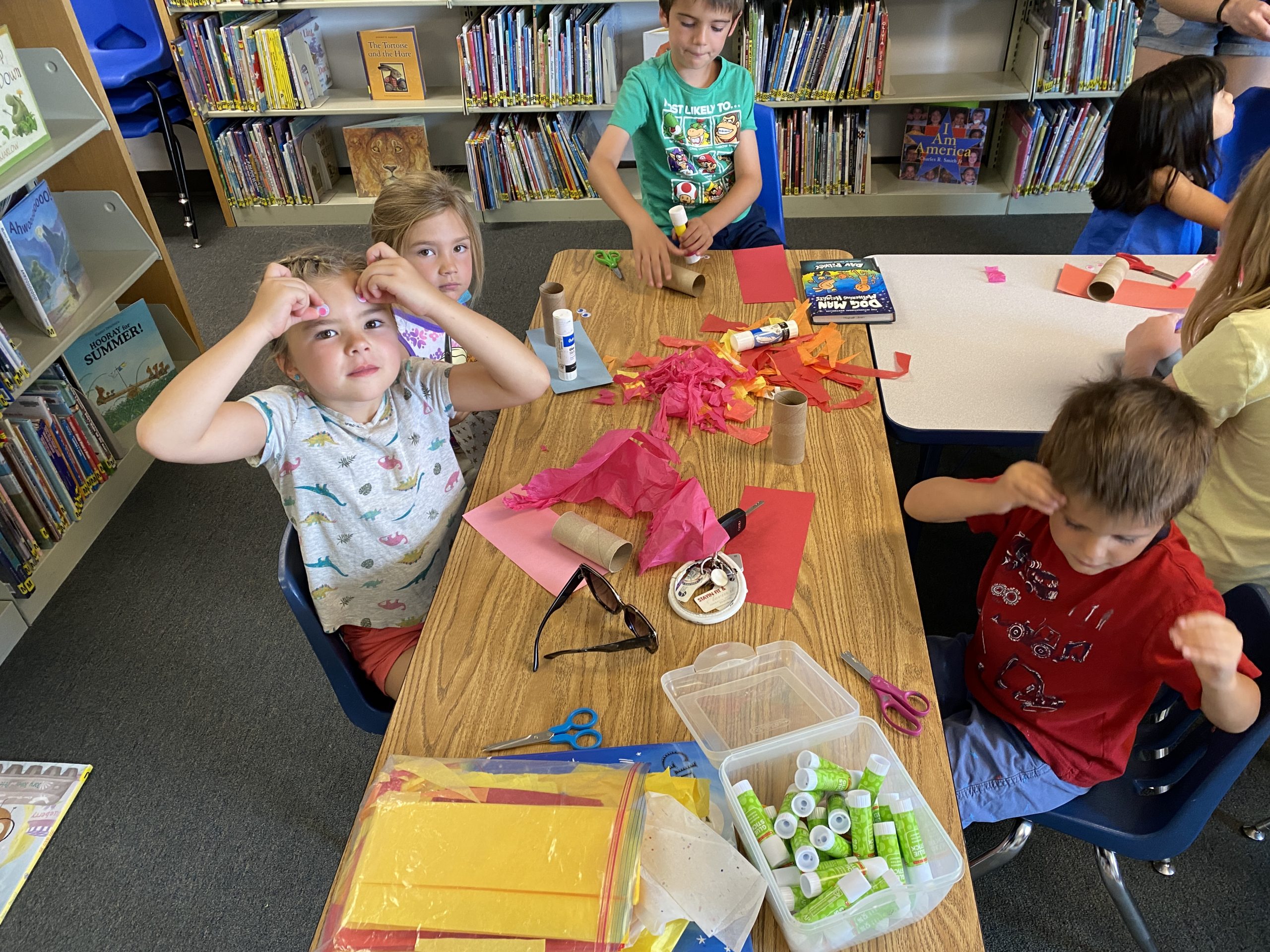
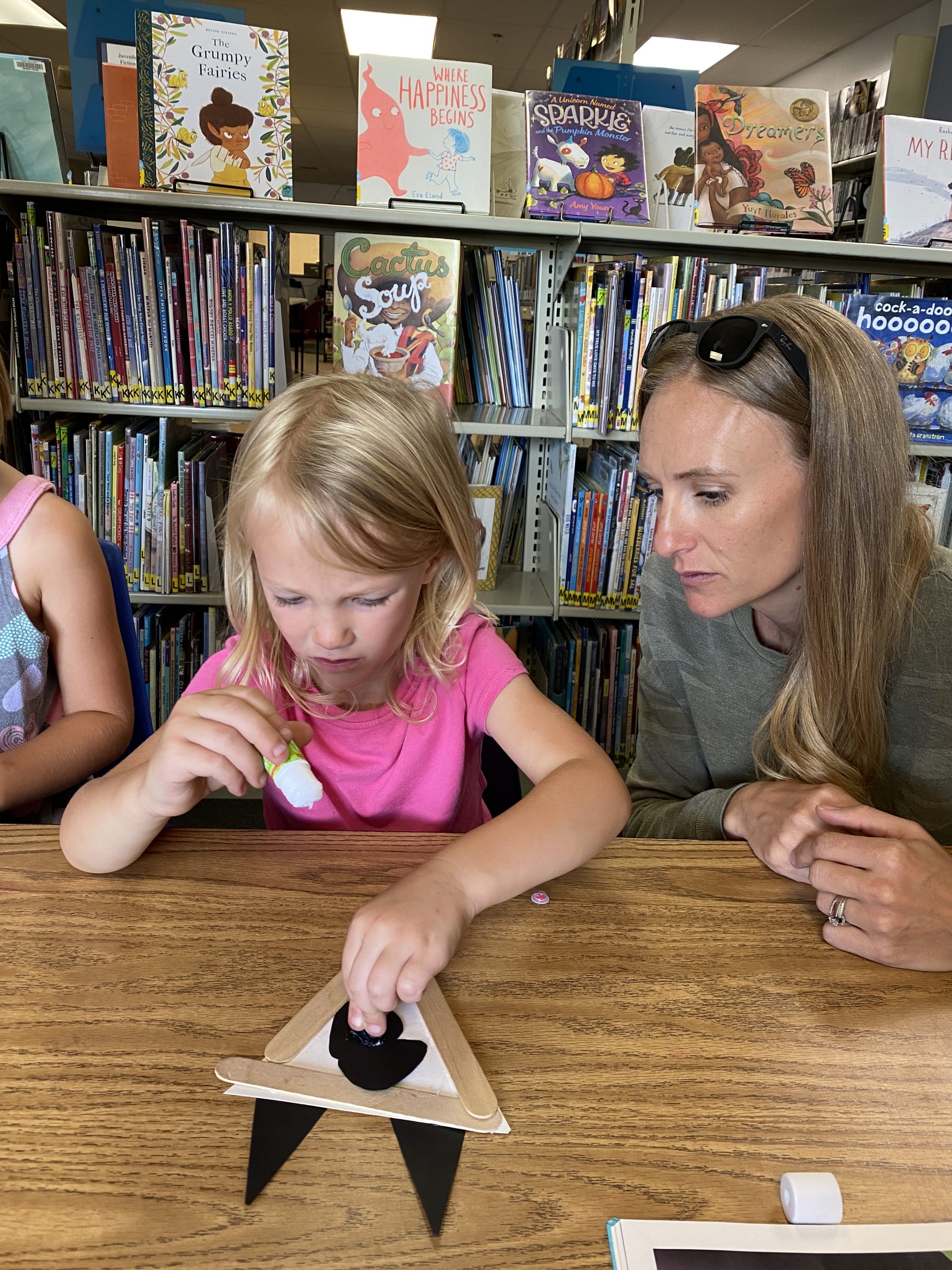
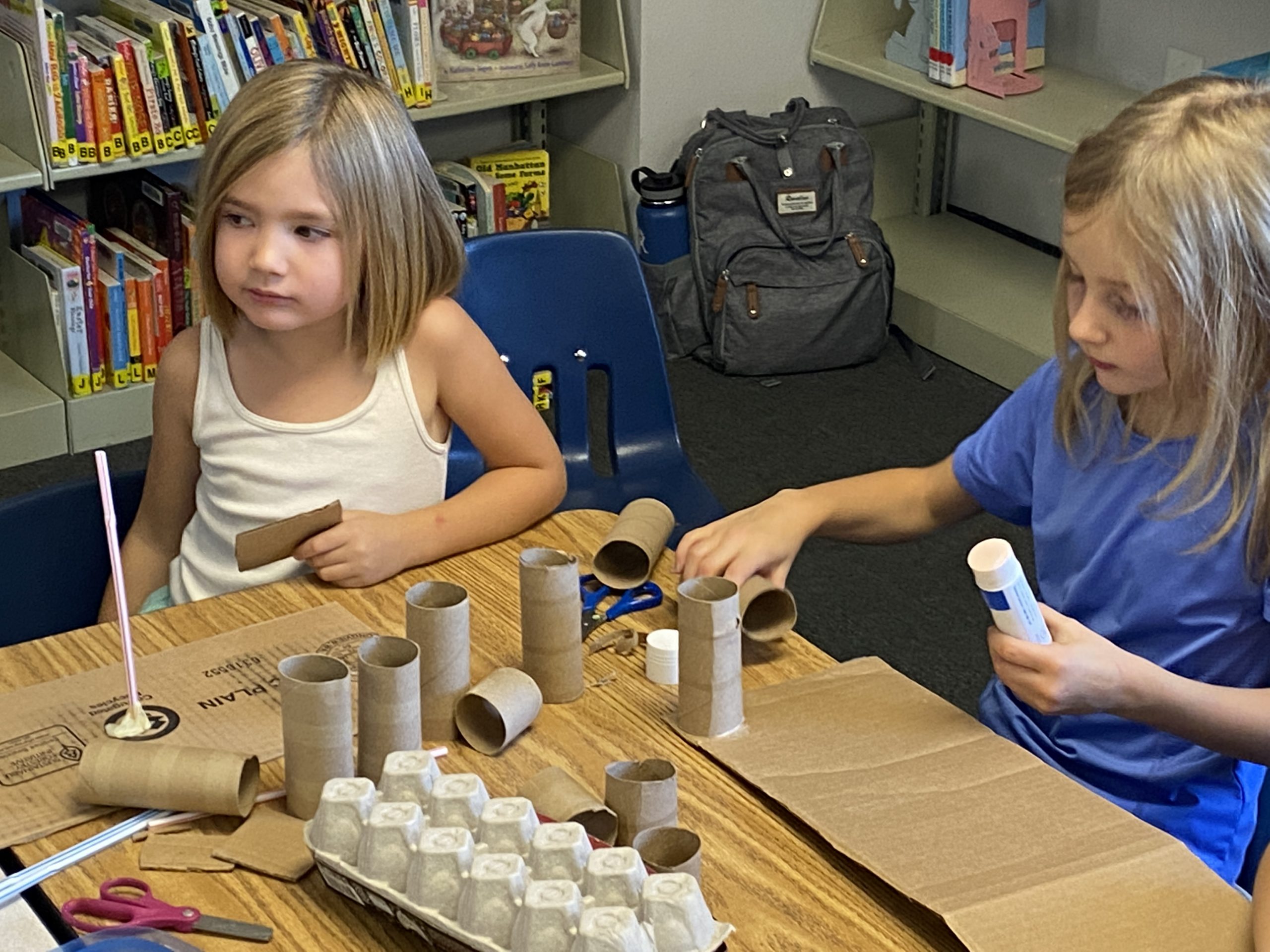
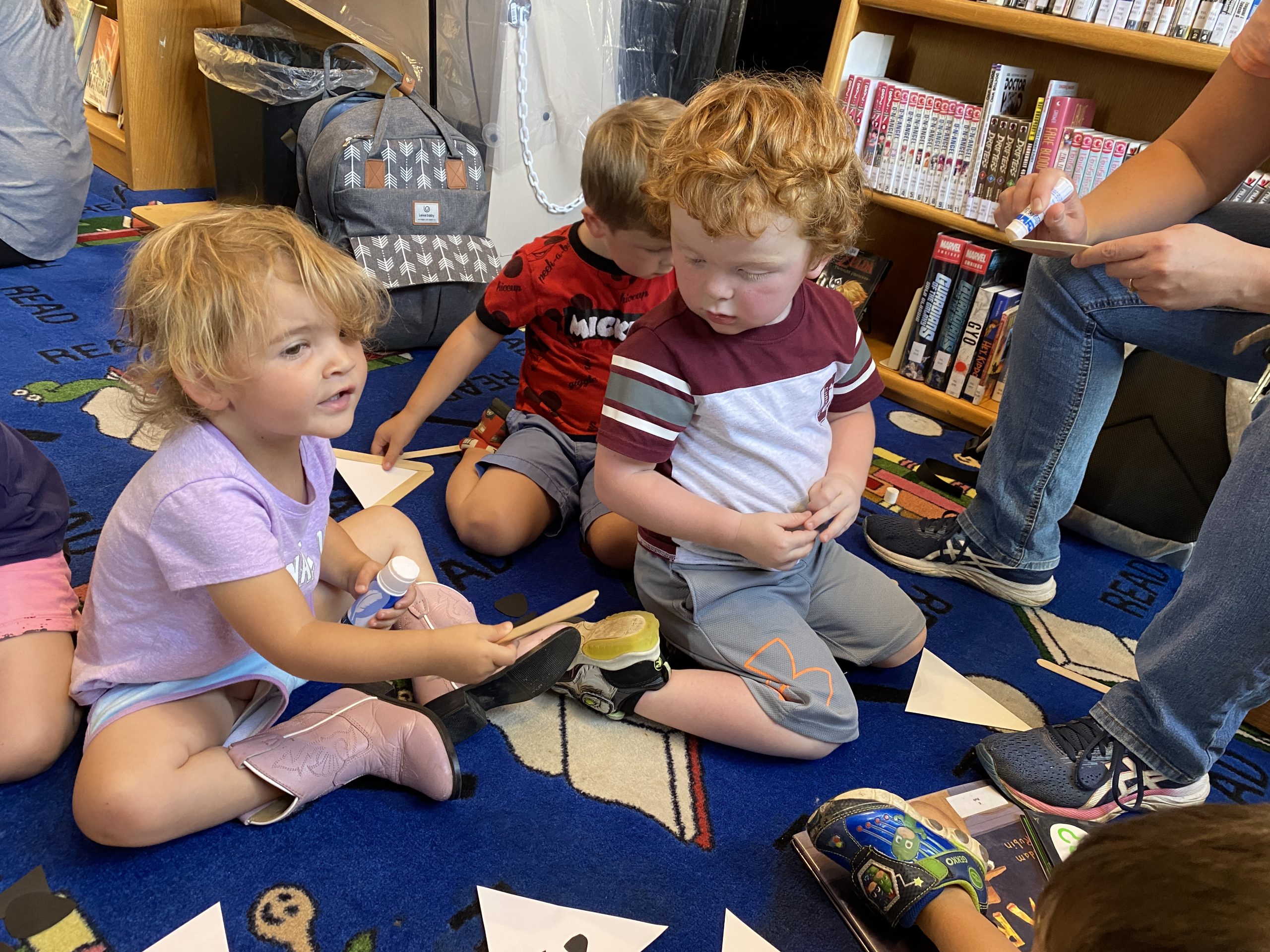
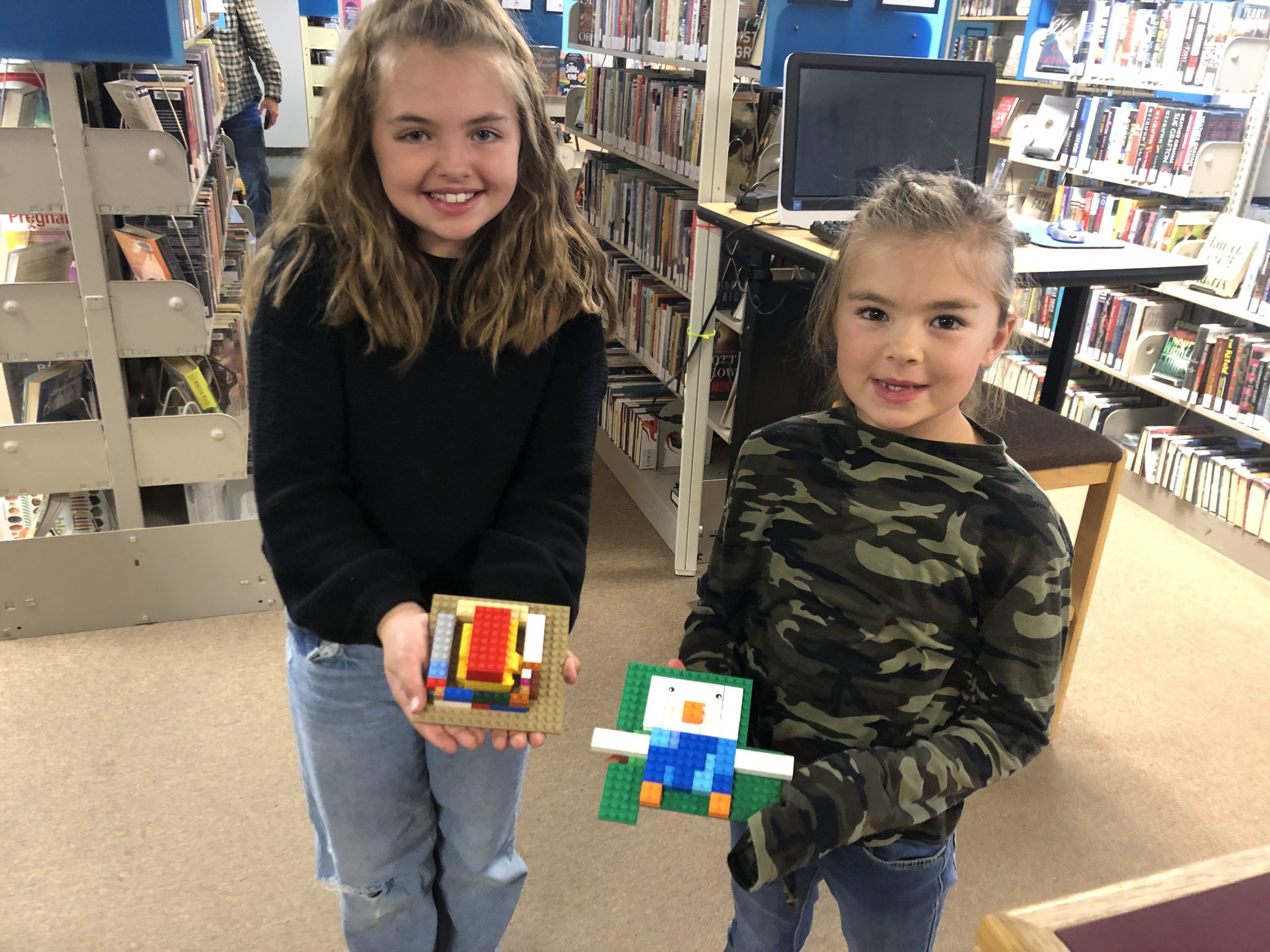
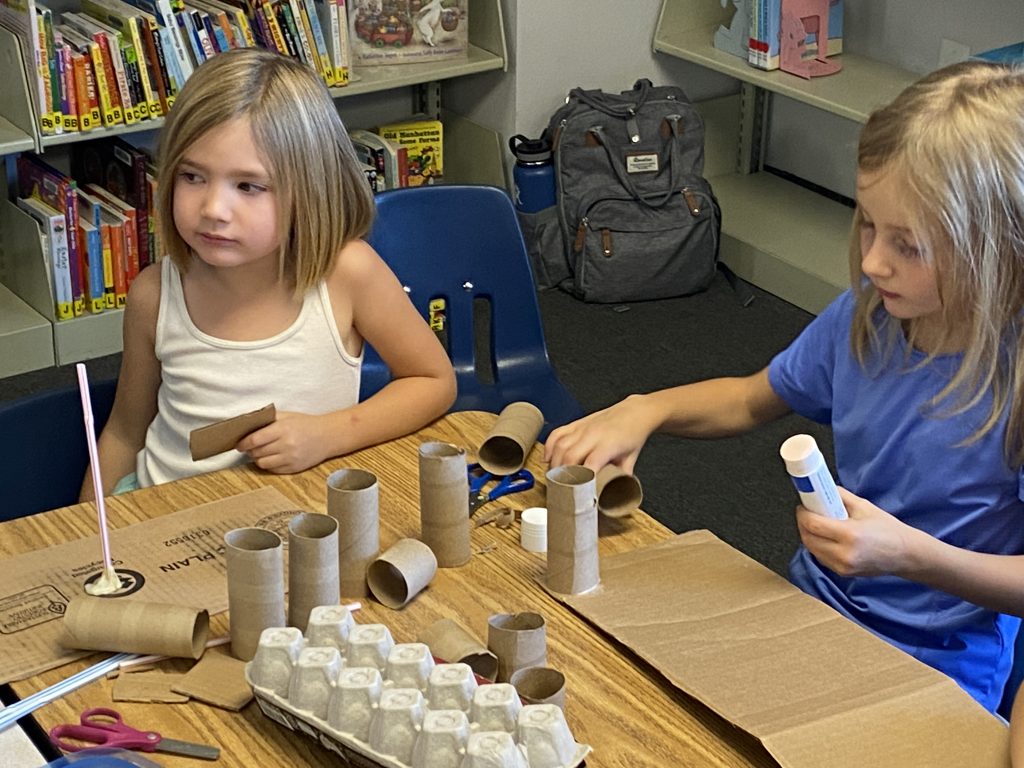
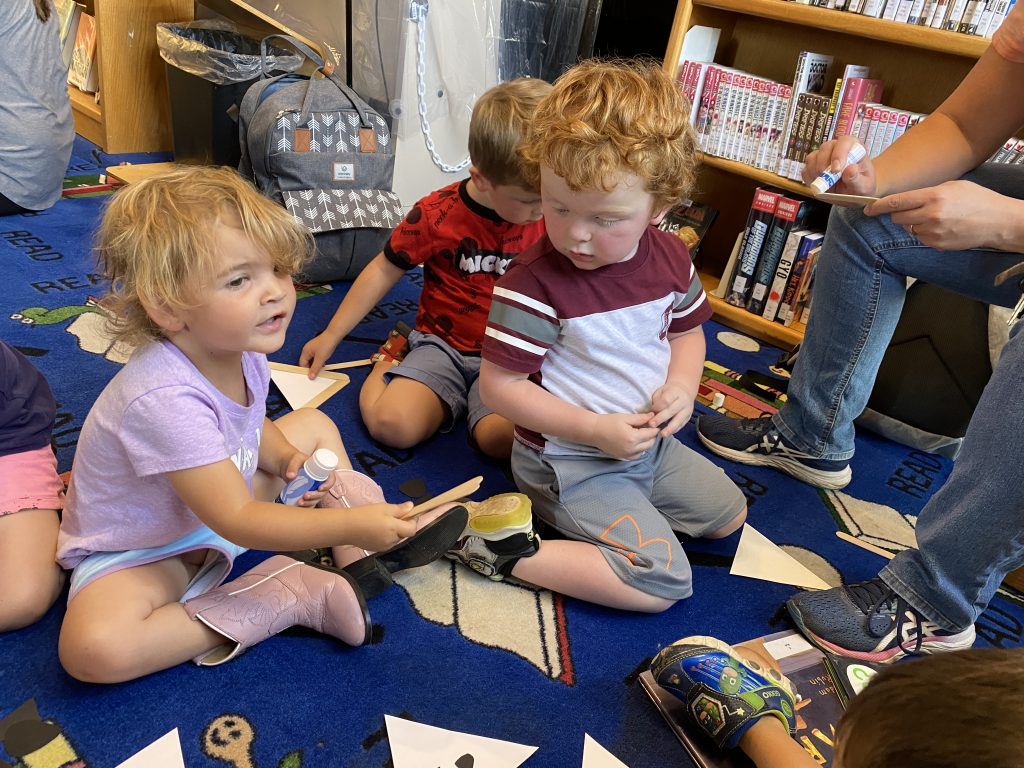
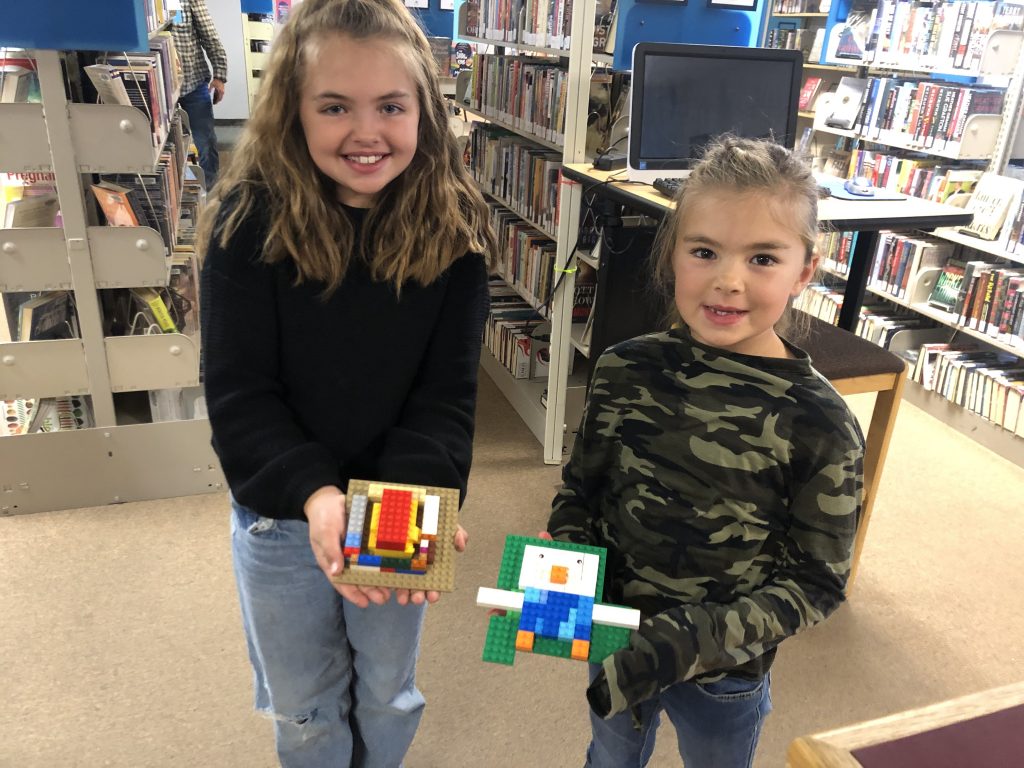
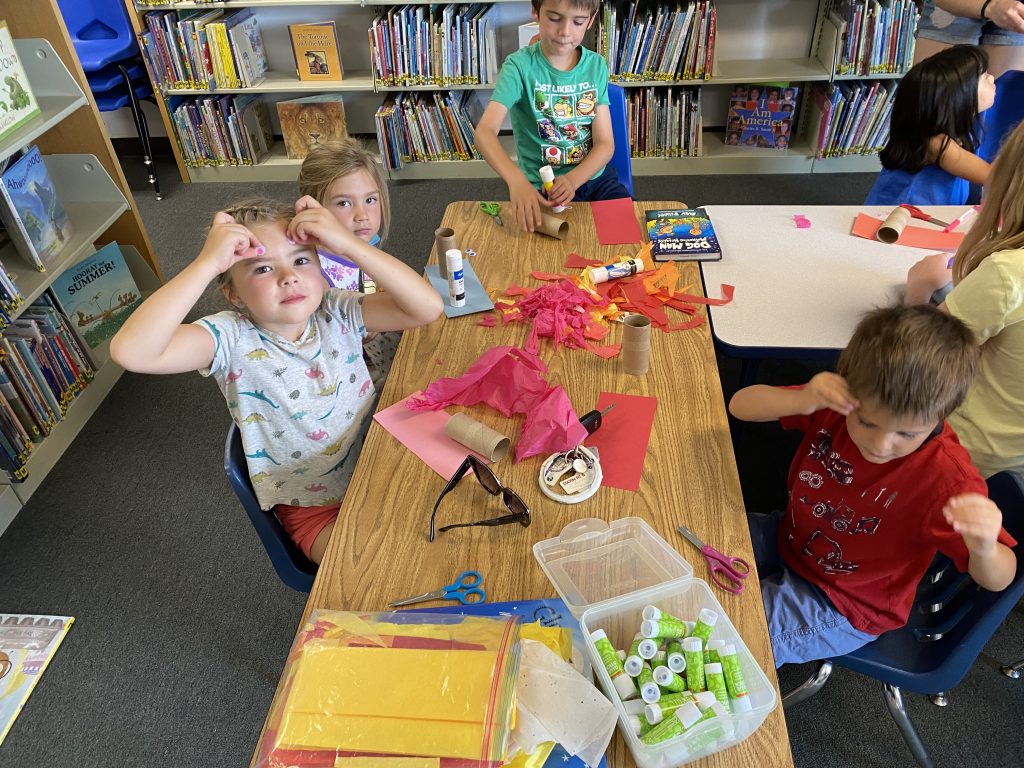
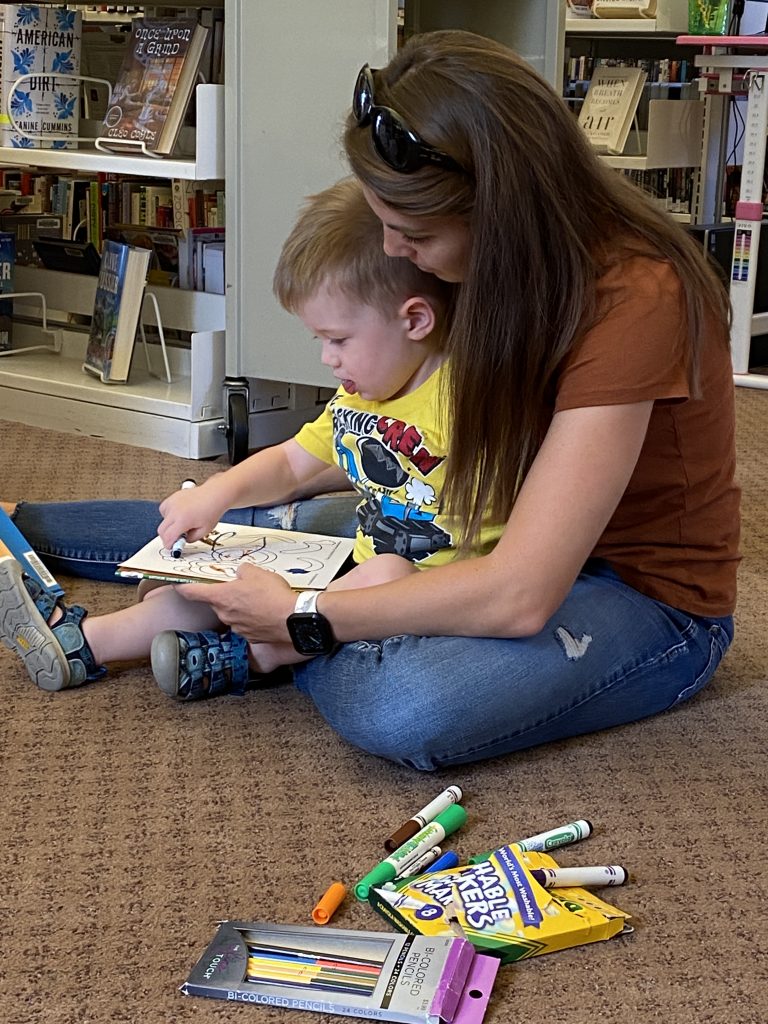
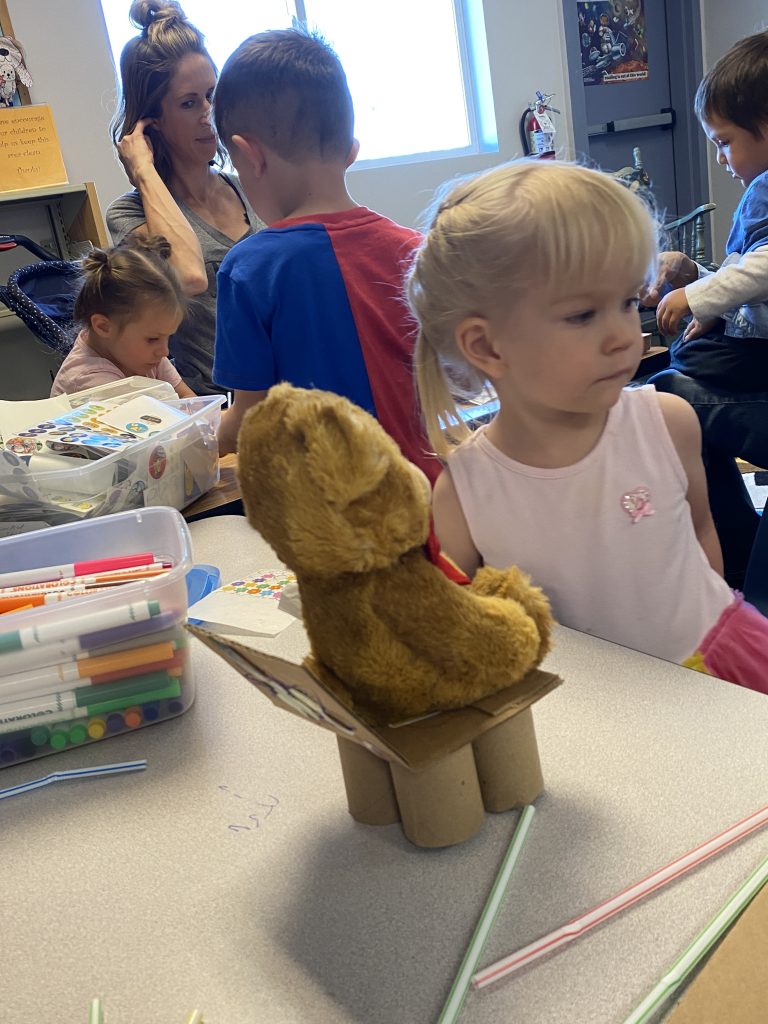
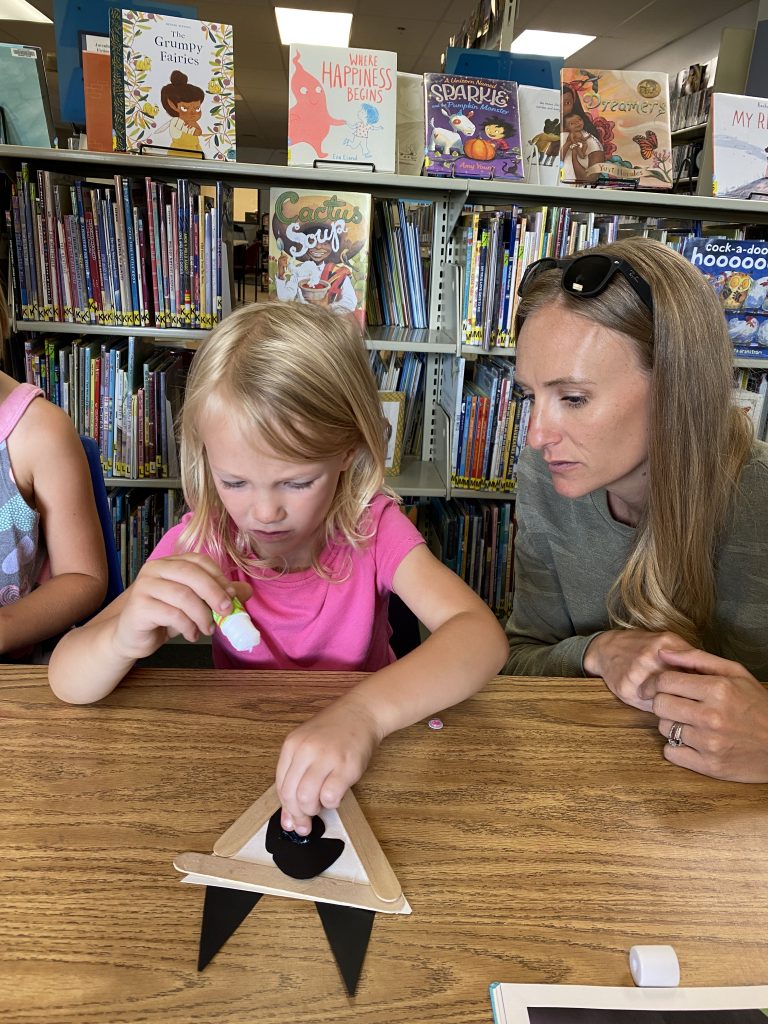
Early Literacy Skills & Tips
- Read: It’s never too early to start reading to your child.
- Activity: Point to the words while you read. Talk about the pictures Share thoughts about the story afterwards. Encourage your kids to write or engage in creative activities related to it. Make connections between the story, real life and your child’s experiences.
- Write: Writing starts with scribbling and drawing. Scribbling is to writing what babbling is to speaking: an early stage of development that should be encouraged.
- Activity: Provide a variety of materials to encourage drawing and scribbling (e.g., crayons, paper, markers, finger paints). Write thank-you notes or make shopping lists together. Point out logos and street signs, and name some letters of their names and family names.
- Talk: By talking to your child, you’re sharing lots of new sounds and words, which improves their understanding of language.
- Activity: Make eye contact when you talk to your child. Comment and ask questions about what they are doing and their environment. Repeat and add new vocabulary to their comments. Model the correct use of words. Label objects.
- Play: Play enhances language development, social competence, creativity, imagination, and thinking skills.
- Activity: When playing, use different noises- it will develop the basics of language. Playing “I spy” games will help build their vocabulary. Let them dress up after a story time- it inspires creativity and, best of all, it’s fun!
- Sing: Singing improves a child’s memory and teaches how to rhyme, both necessary skills for reading.
- Activity: Add gestures to the song, it will help them get the meaning of the words. Add claps, it helps them hear the syllables in a word. Sing along with your child to their favorite CD. Create songs to go along with their daily routines. Sing songs in the child’s home language.
- Count: Reading and math skills are related. Learning to count is one of the earliest math skills that also has an impact on literacy.
- Activity: Count the objects on a page in a book while you’re reading. Or count the number of objects in a group. Point to each object or move them as you count. This helps children learn one-to-one correspondence.
Every Child Ready to Read
You are your child’s first and most important teacher! You know your child best and can work with them at times when they are in the mood to learn. What you do helps your child get ready to read. There are six pre-reading skills that children must have in order to learn to read. You can practice these skills with your child at any age, from infant on up; just adapt it to their age.
- Narrative Skills
- Ability to describe things and events, and tell stories
- Tell stories to your child
- Have them tell you stories
- Practice what happens first, next and last
- Relate what is going on in the story to something similar you have done
- Phonological Awareness
- Ability to hear and play with the smaller sounds in words
- Play rhyming games
- Ask, “Do cat and dog rhyme? Do cat and hat rhyme?”
- Sing songs and clap out the syllables in the words
- Put two words together to make compound words
- “What if we put hot and dog together? What word does that make?”
- Take compound words apart
- What would you have if we took cow away from cowboy?
- Print Motivation
- Being interested in and enjoying books
- Make book sharing a special time
- Let your child see you read
- Visit your library often
- Let your child know that you value reading in your daily life
- Vocabulary
- Knowing and using words to name people, objects, feelings, actions, locations, etc.
- Talk with your child about what’s going on around you
- Point and identify everyday items as you encounter them
- Add more details to things your child tells you
- Read together every day!
- Research shows that children who have larger vocabularies are better readers
- Print Awareness
- Noticing print, knowing how to handle a book and knowing how to follow the words on a page
- Read aloud everyday print—labels, signs, lists, menus
- Let your child hold the book and turn the pages
- Hold a book upside down and see if your child notices
- Letter Knowledge
- Recognizing letters, and knowing their names and sounds
- Write your child’s name
- Make letters from clay
- Play with magnetic letters
- Read alphabet books and point out the letters
- Show your child that the same letter can look different
1,000 Books Before Kindergarten
Welcome to 1,000 Books Before Kindergarten!
Brought to you by Pines & Plains Libraries. Enjoy books together now, and reap the benefits as your child gains skills that will prepare him or her for learning to read independently.
Pick up your 1,000 Books Before Kindergarten folder from your local branch today!
How do we read 1,000 books before kindergarten?
1 book per day for 3 years = 1095 books
10 books per week for 2 years = 1040 books
3 books per day for 1 year = 1095 books
How-to Guide:
- Track the number of books you and your child are reading using the tracking sheets provided in your 1,000 books folder.
- When you have read 100 books with your child, come to the library to get a sticker for your tracking sheet.
- When your child reaches 1,000 books, he/she will receive a book to keep. They will also get a certificate and be photographed to appear on the 1,000 books wall of fame.
- You can do this for every child in your family, from infant up to kindergarten.
- Tell all your friends about this program so they can sign up their children too!
Every child enrolled in the program receives a free book to get started with. You’ll receive a folder with tracking sheets and a recommended list of great books to read before kindergarten. The books on the list are just suggestions. It is important to read what you and your child enjoy.
Frequently Asked Questions:
Q: Do we have to read a book from Pines & Plains Libraries?
A: No, you can read books from anywhere—your home, preschool, other libraries, etc.
Q: I read the same story every night to my child. Can I count that book more than once?
A: Yes! Kids love to hear the same book over and over. Just have your child color in a shape every time you read it.
Q: I have more than one child I read to. Can I count the same title for each child?
A: Of course you can! And if one of your older children read to their sibling, you can count that also.
Q: Can I count books that are read at Story Time at the library?
A: Most definitely!
Q: What about books that my preschooler hears at school?
A: Yes, you can count those too.
Q: Can we count audio books that my child listens to?
A: As long as your child listens to the entire story, you can count it.
Q: My older children like to read to their younger siblings. Can I count those books?
A: Count any books that are read to your child, no matter who reads the books. It can be a brother, sister, grandparent, babysitter, teacher, etc. As long as they hear the entire story, you can count it. Feel free to count books that your child reads to you as well.
“There is no substitute for books in the life of a child.” ~ May Ellen Chase
